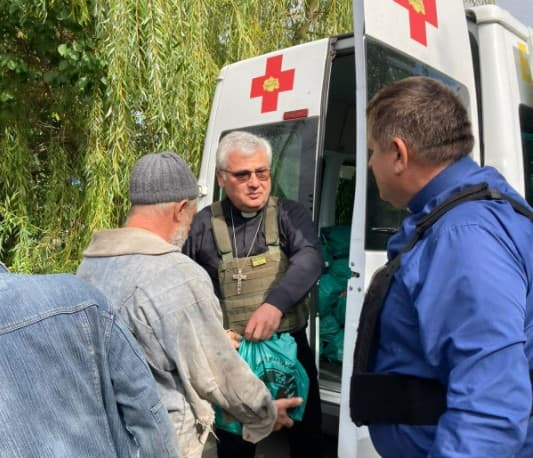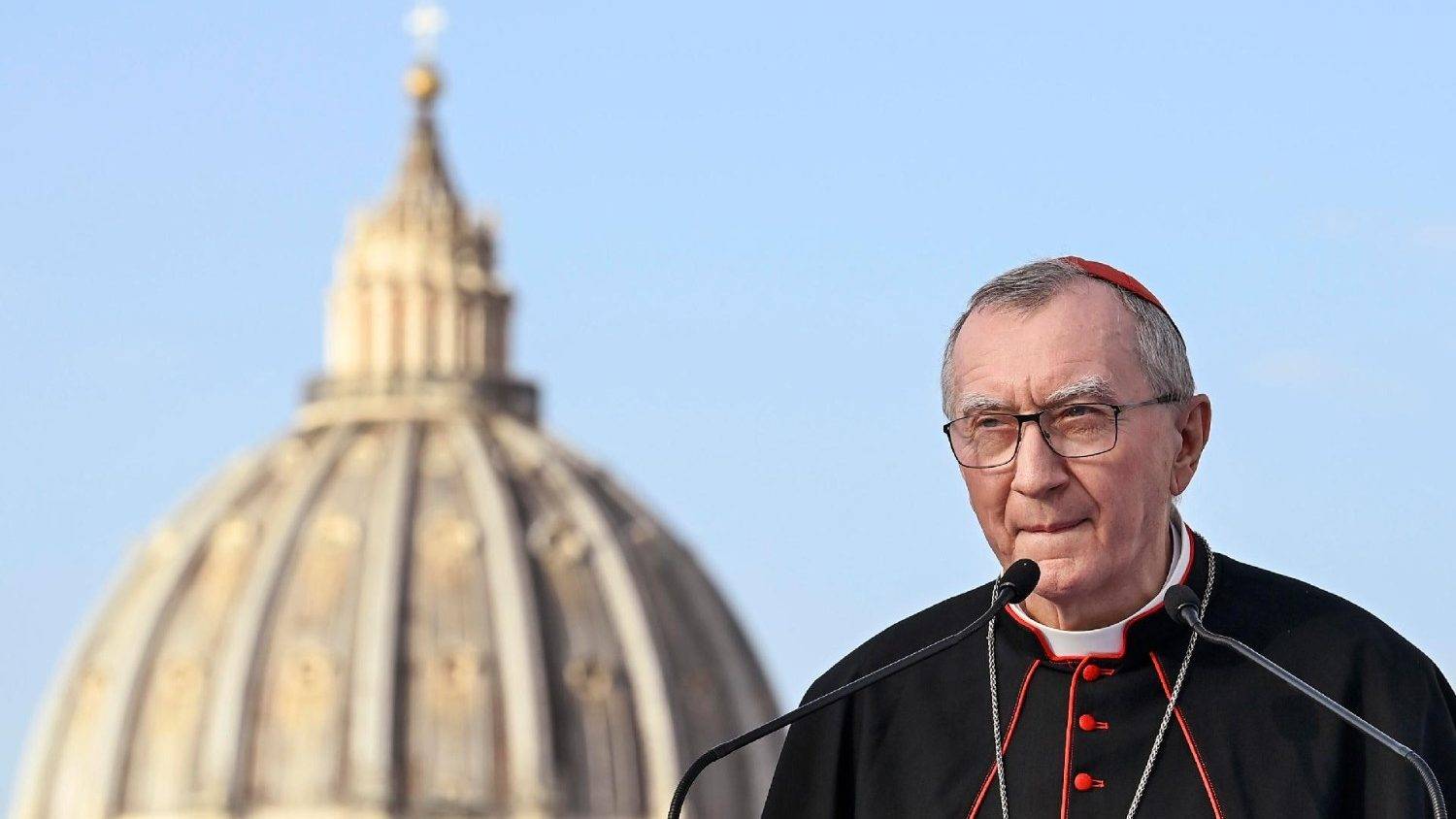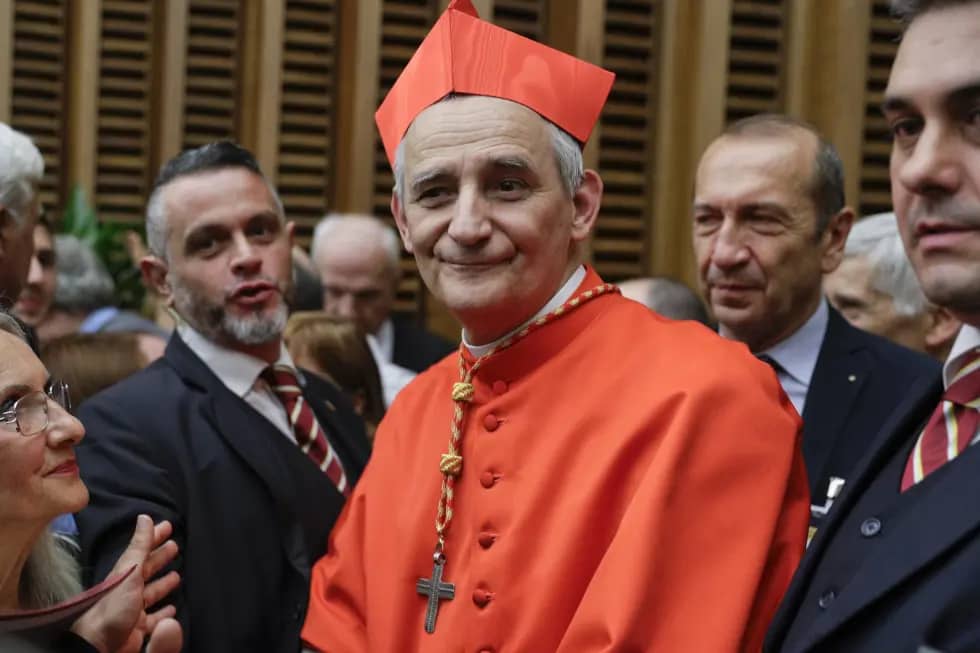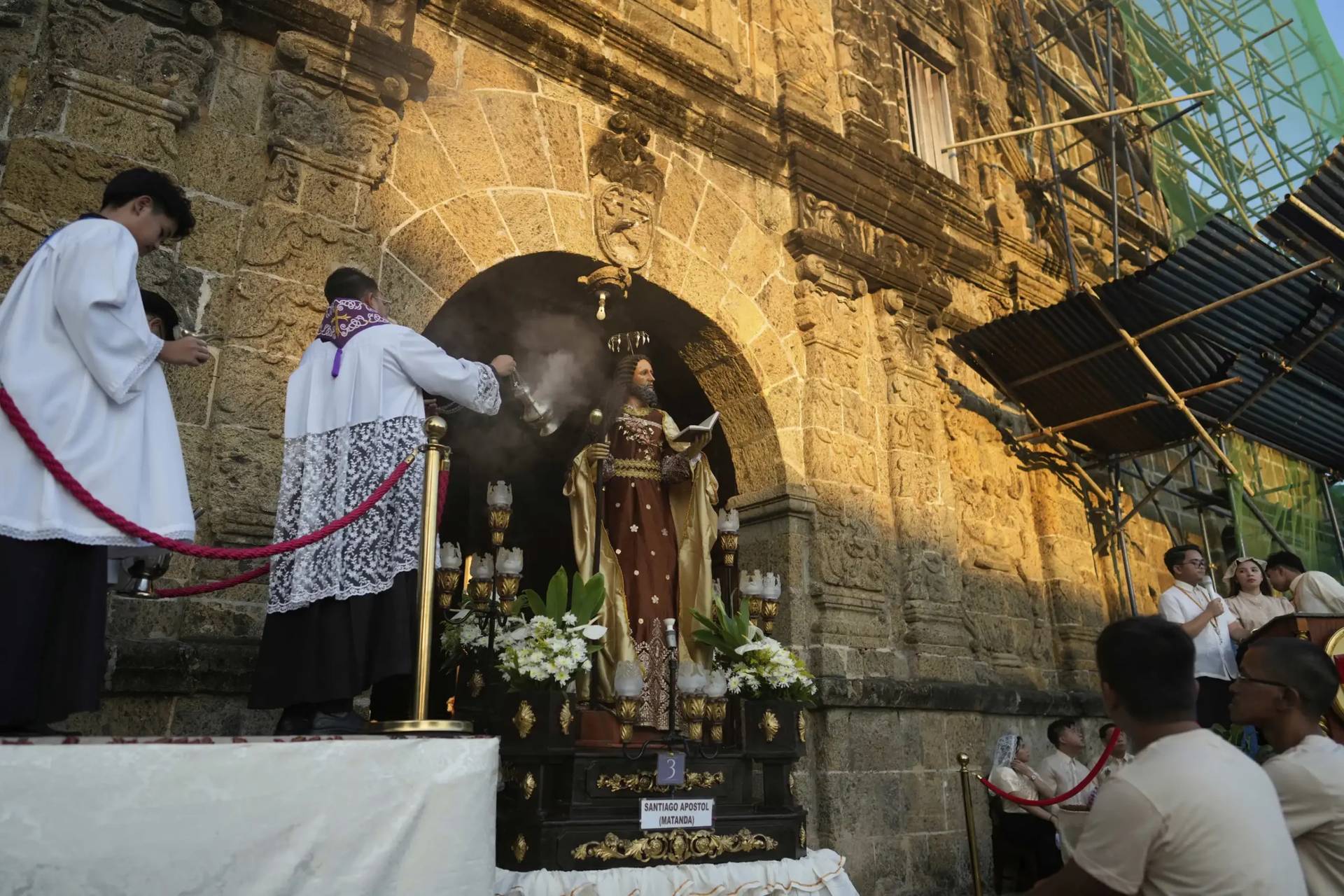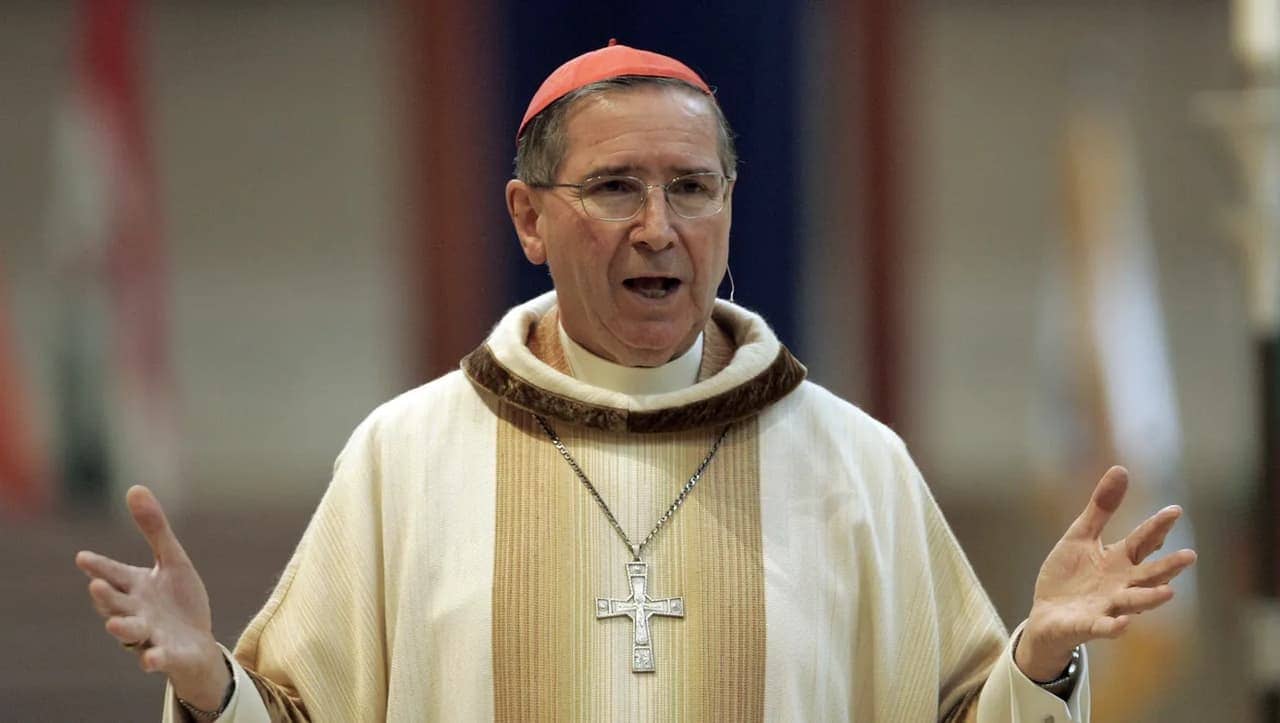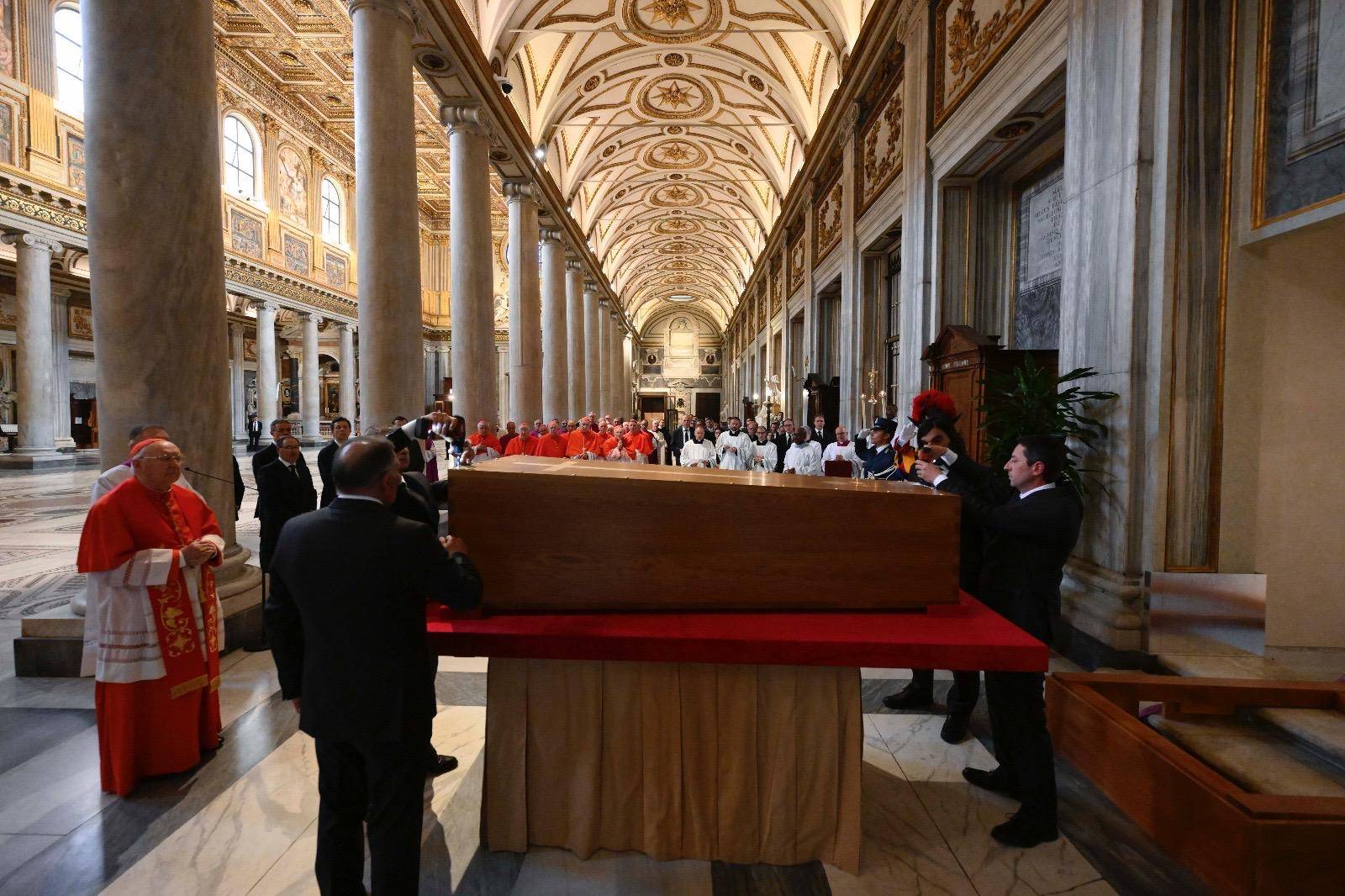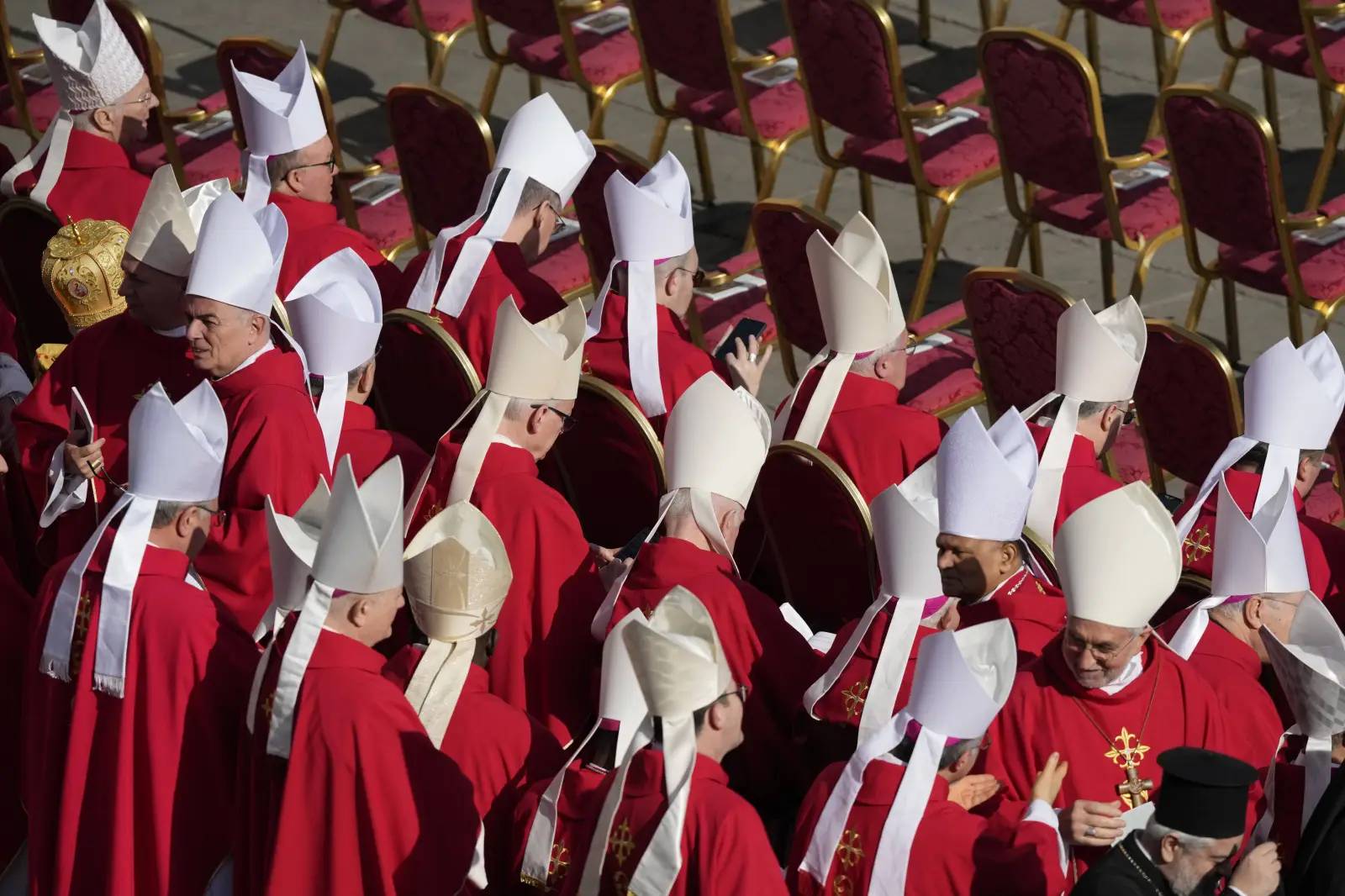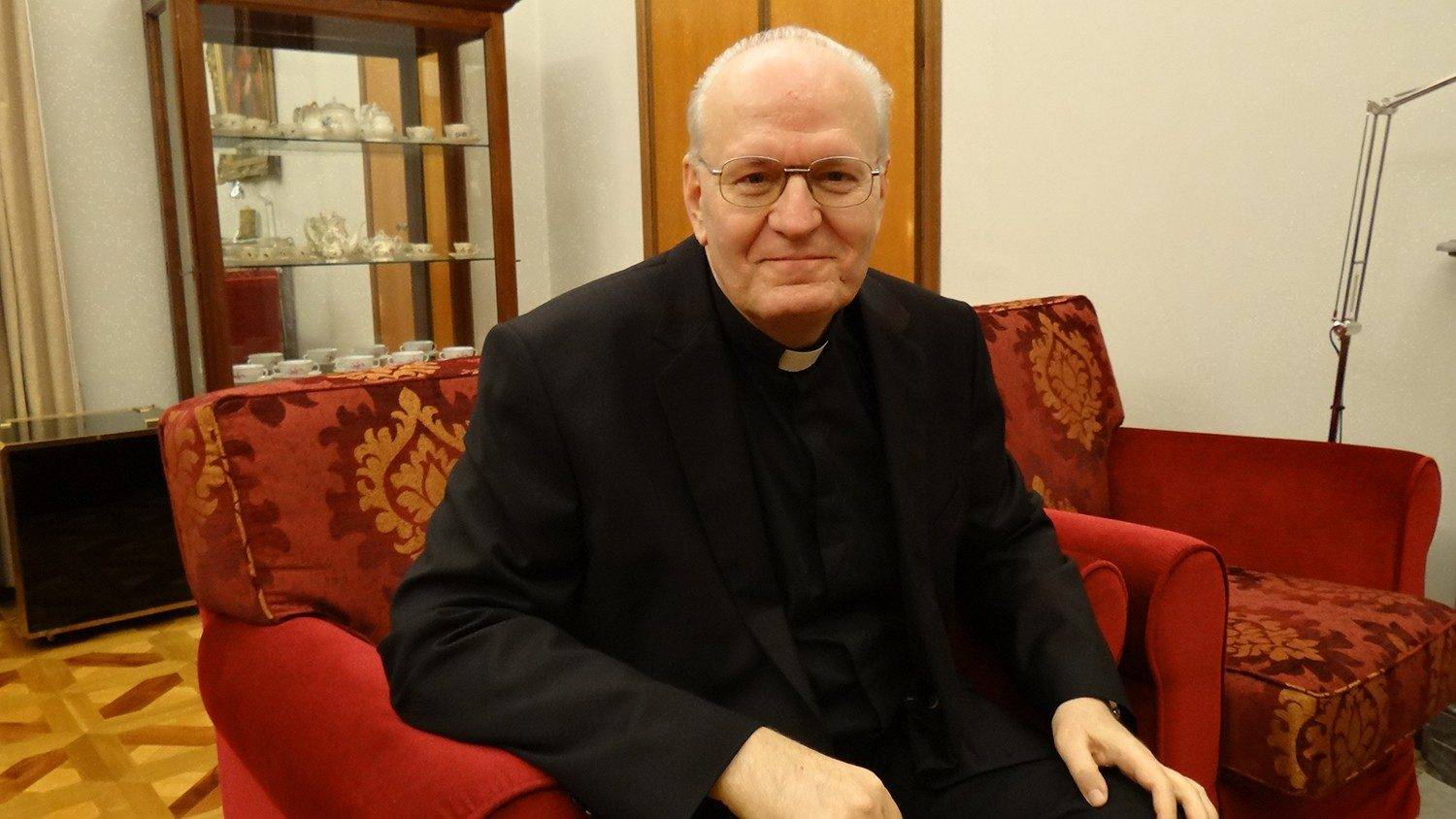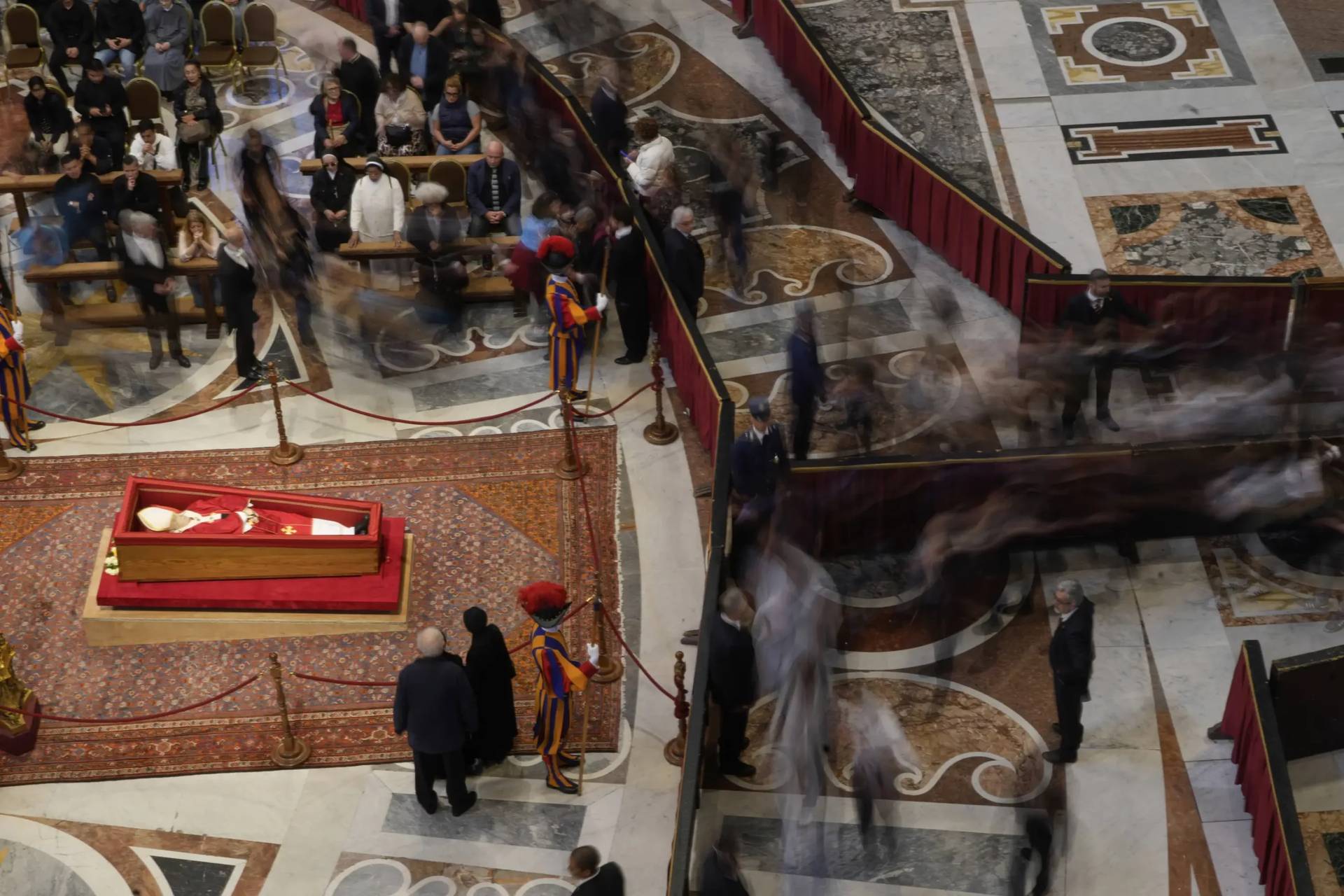KRAKOW, Poland – After emerging unharmed from gunfire by Russian forces on a humanitarian convoy he was leading in eastern Ukraine, Polish Cardinal Konrad Krajewski was scheduled today to visit the site of mass graves left behind by Russian occupiers, declaring “the entire world now knows they’re real.”
So far, officials of Ukraine’s Defense Ministry say that at least 440 unmarked graves have been discovered in the wake of a Russian withdrawal from the eastern city of Izyum, despite repeated denials from Russian officials that their forces have targeted civilians or committed war crimes.
In the past, Moscow has suggested that purported images of civilian casualties or mass graves in conflict zones amount to Ukrainian propaganda.
Krajewski, the pope’s top charitable official, is currently in Ukraine for the fourth time, visiting the frontline of heavy fighting in the eastern part of the country.
On Saturday, while distributing food to the Ukrainian people, Krajewski, along with the local bishops of Zaporizhnia, came under fire by Russian forces.
“While we managed to give the first portion of humanitarian help peacefully, during the second one they started to fire on us,” Krajewski told Crux. “For the first time in my life, I did not know where to run,” he said, explaining that a Ukrainian soldier guided him to shelter and warned that the group had 10 minutes before a second round of attacks would start.
“They say there are a lot of traitors in that terrain,” Krajewski told Crux, referring to people who collaborate with Russian forces. “When they spot humanitarian help being distributed, they give a location through their mobile phone and the gunfire starts.”
“We managed to distribute papal rosaries to the soldiers,” Krajewski said. “Almost all of the Ukrainian soldiers, no matter what their faith was, put the rosary on their neck immediately.”
Krajewski traveled to Ukraine in a minivan packed with humanitarian assistance from Pope Francis.
During a meeting with all 16 Latin bishops of Ukraine, Krajewski said he distributed a package for each “so they know how close they are to the Holy Father.”
“None of them abandoned their flock since the beginning of the war,” he told Crux. “I was there to thank them in the name of the Holy Father.”
As it turns out, Saturday’s gunfire wasn’t the only uncomfortable moment for Krajewski in Ukraine. He said he also faced tough questions from bishops and priests about Francis’s approach to the war, which has left many Ukrainians frustrated that the pontiff hasn’t denounced Russia and President Vladimir Putin more directly.
“The Holy Father thinks in term of the Gospel,” Krajewski said he told the bishops. “The pope insists that the drama of the war is on both sides.”
Krajewski told Crux it was difficult to say so in Ukraine, but “both sides suffer in the war, also the Russian side, where soldiers and their families were manipulated into this war, were given weapons … the war destroys both sides, that is the message of the Holy Father.”
As a sign of Pope Francis’s closeness to the people of Ukraine, Krajewski said he drove from Lviv through Kamieniec Podolsky and Odessa in eastern Ukraine with the auxiliary bishop of Zaporizhnia, Jan Sobiło, visiting houses one by one.
“We didn’t gather in cathedrals, which would be easier; we wanted to sit with everyone at the table,” he said. “This is what Jesus would do, sit at the tables and visit houses of the needy from dawn to sunset.”
“I wanted those people to know that Pope Francis cares about them. Even in Kazakhstan he stressed, ‘don’t forget about my beloved Ukraine’”, Krajewski said. “For the last 200 plus days, he’s mentioned suffering Ukraine in every prayer of the Angelus and every general audience.”
Saturday marked nine years since Krajewski became the Papal Almoner, and for four months now he’s led the Vatican’s Dicastery for the Service of Charity.
“I thought during that journey through Ukraine, this is the time the Ukrainian people need to stand at the cross of Jesus like the Virgin Mary,” he said, noting that Friday was the feast of Our Lady of Sorrows.
“Jesus will tell them, ‘This is your mother, Ukraine,’ and to Mary he will say, ‘This is your people.’ In this moment, we all need to shout out, ‘Jesus I trust in you,’ and then miracles will start to happen in this suffering land.”
The phrase “Jesus, I trust in you” is associated with the divine mercy devotion of Polish St. Faustina Kowalska, promoted under Pope John Paul II.
Scheduled to arrive in Izyum today, Krajewski compared it to Katyń in Poland, where in 1940 more than 21,000 Polish military officers and prisoners of war were executed by the NKVD, the Soviet secret police. He said the scenes appear eerily similar, with mass graves located in pine tree forests, some victims displaying signs of torture, and with their hands tied behind their backs.
“’Jesus I trust in you,’ is all we can say here in Ukraine,” Krajewski said.
